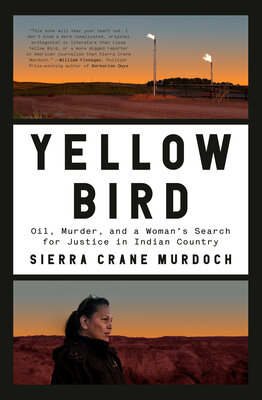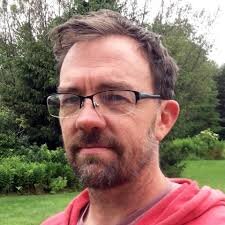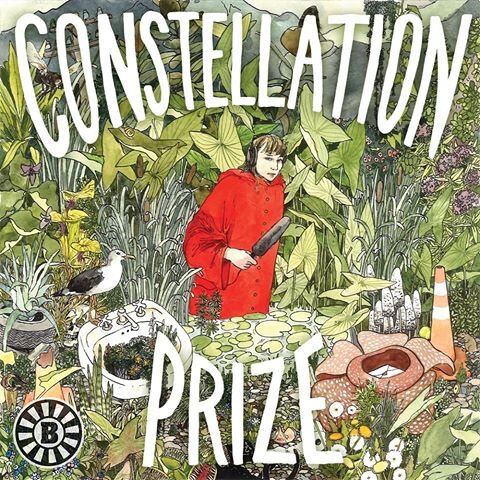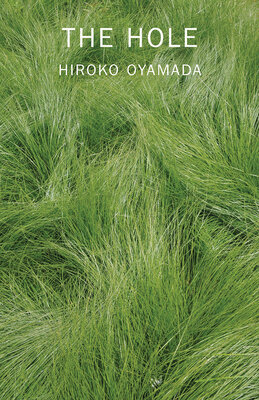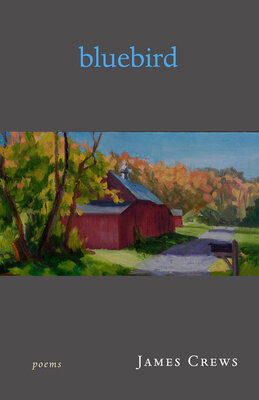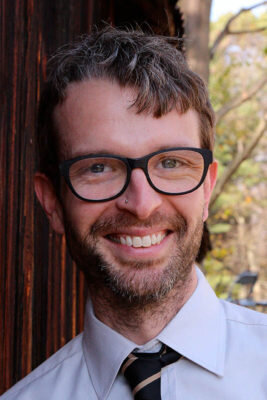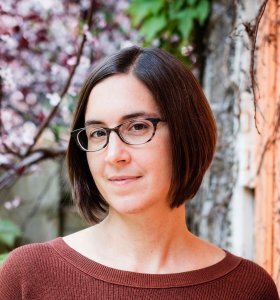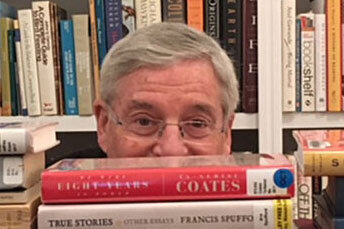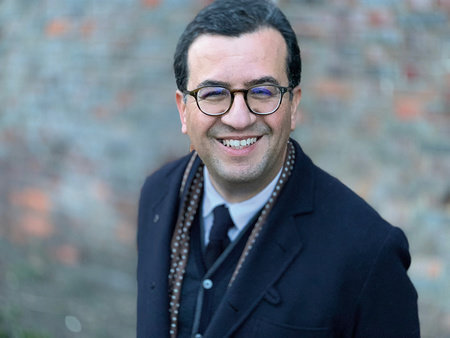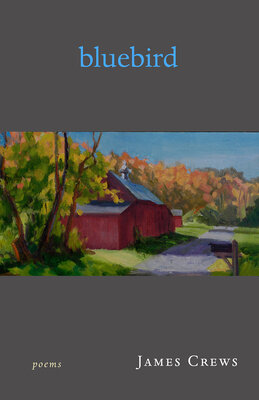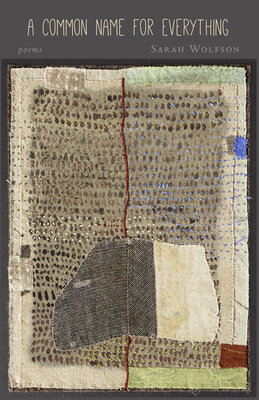"The Dipper" is our monthly newsletter, where we highlight readings, events, calls for submission, and other literary-related news for the coming month. If you have news or events to share, let us know!
November News
Thank you to everyone who attended Sierra Crane Murdoch’s talk in October. What a wonderful night! A huge thanks to Allie Levy of Still North Books for hosting via Crowdcast and to Angela Evancie of Brave Little State for interviewing Sierra. If you missed the event, you can still catch the replay. Don’t forget to pick up your copy of Sierra’s fantastic book, Yellow Bird.

Angela Evancie and Sierrra Crane
—
In case you missed them, in October we added three new interviews to our blog with writers whose recently released books we really love.
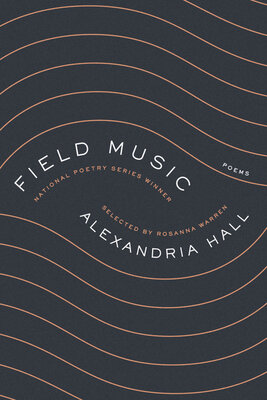
-
First, we welcomed a guest interviewer: poet, teacher and bookstore owner, Rena Mosteirin, who interviewed poet Alexandria Hall about her evocative debut poetry collection, Field Music (Ecco, October 6), which won the 2019 National Poetry Series award selected by Rosanna Warren. In their discussion, Alexandria and Rena talk about the musical quality of the poems in Field Music, the influence of writing in Vermont, and the best writing advice Alexandria’s ever gotten in a workshop.

-
We also interviewed writer Meredith Hall about her first novel, Beneficence (Godine, October 20), a quiet, unputdownable novel that focuses on the Senters, a farming family in rural Maine over the course of many years. Reminiscent of Wendell Berry and Marilynne Robinson, Hall’s writing is truly beautiful. Read our interview with Meredith to learn how the Senter family came into being, the role of light in her book, and what books she’s really loved recently.
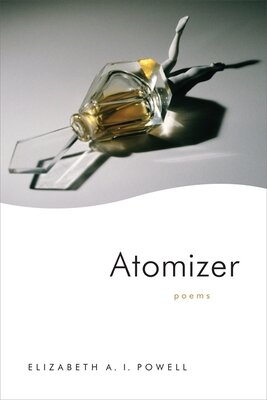
-
And we interviewed Elizabeth Powell about her latest collection of poetry, Atomizer (LSU Press, September 9), an expansive, honest, and often very funny exploration of life and love in the digital age. Whether she’s writing about the perils and humor of online dating, the insidious workings of capitalism in our cultural and political lives, or her childhood memories of perfume and fashion, these poems are intelligent, accessible, and riveting. Read our interview with Liz to learn how her posh Parisian stepmother provided her early education in perfume, and the connection between her grandfather and Robert Frost.
p.s. Did you know that you can see a list of everything we’ve ever published on our blog on our handy Blog Post Directory? You can easily find back issues of The Dipper, all of our interview posts, reading lists, Friday Reads suggestions, and more!
—
After a very busy several months of virtual events and other projects, we’re looking forward to having a quiet end to the year. Among other things, fewer projects means we’ll have more time to spend reading our final Slow Club Book Club selection, Dionne Brand’s The Blue Clerk.
But never fear! We are busy making plans for next year. In fact, we’re getting ready to announce a new Constellation community writing project in early 2021. Newsletter subscribers will be the first to find out the details.
—
As this newsletter goes to press, our thoughts, of course, are turning to the events of early November (please tell us you all have voted or have a voting plan), the imminent winter, and the coming holiday season, which, like the rest of 2020 will be oh-so-strange.
One thing we know we can do for ourselves, our loved ones, and our local community is to give each other beautiful, meaningful (and sometimes distracting) books we purchase from independent bookstores. In the coming weeks, we’ll be highlighting some of our favorite books by local authors, our favorite books of 2020, and some favorites of our local independent booksellers. Watch our Twitter and Instagram feeds in November to see these special holiday book shopping suggestions.
November’s Shooting Stars
A cool literary find from each of us to help light up your month!

-
If you haven’t seen the new Sundog Poetry Center website, I encourage you to take a look. The redesign is wonderful. While there, you can check out their new virtual event series, Two Poets, Two Books, and read more about the Vermont Book Award. —Shari
-
Do you know Emergence Magazine? I landed there accidentally by way of a series of links that led me to this magical multimedia poem by Forrest Gander and Katie Holten. And then the “Language Keepers” podcast series about the struggle for indigenous language survival in California caught my little linguistic eye, and, yeah, I think I’ll be spending some time there. —Rebecca
November Highlights
Christa Parravani will be in conversation virtually with author Merritt Tierce to discuss Parravani’s new memoir, Loved and Wanted, via Northshire Live on November 10 at 6:00 pm.

Terese Mailhot
Poets Elizabeth Powell and Anna Maria Hong will read as part of the new Sundog Poetry virtual series, “Two Poets, Two Books,” on November 11 at 7:00 pm.
On November 12 at 4:45 pm, join poets Forrest Gander and Nicole Sealey for an online reading and Q&A via Dartmouth College’s Leslie Center for the Humanities.
Terese Mailhot is giving a virtual reading and craft talk through Vermont Studio Center on November 13 and 14, respectively. The reading will begin at 7:00 pm and the craft talk starts at 10:00 am. (Slow Club Book Club members, take note!)
Poets Chen Chen and Jennifer Militello read as part of the virtual Loom Poetry Series via Toadstool Bookshop on November 15 at 4:30 pm.
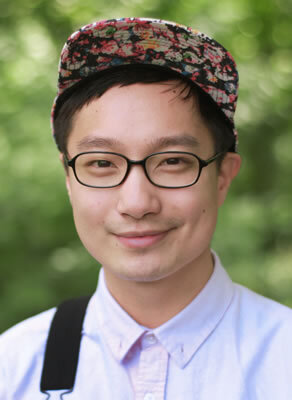
Chen Chen
On November 19 at 7:00 pm, François S. Clemmons, who played Officer Clemmons on Mister Rogers’ Neighborhood, reads from his memoir as part of Virtual Bookstock 2020.
Shawn Wong and Miciah Bay Gault will participate in the Vermont College of Fine Arts Fall Reading Series on November 20 at 5:30 pm. The event includes a round-table discussion on publishing with several agents from Folio Literary Management.
Visit our calendar for detailed information about these events and more!
Worth a Listen
-
What a treat to hear Ocean Vuong read a new poem (“Beautiful Short Loser”) and talk about his writing practice on In the Studio.
-
Rumaan Alam talks to Christopher and Drew of So Many Damn Books about his latest novel, Leave the World Behind.
-
Ali Smith talks with Linn Ullmann about her seasonal quartet of novels on the How to Proceed podcast.
We're Looking Forward to These November Releases

-
Theorem, by Elizabeth Bradfield and Antonia Contro (Poetry Northwest Editions, November 1)
-
Aphasia, by Mauro Javier Cardenas (FSG, November 3)
-
To Be a Man, by Nicole Krauss (Harper, November 3)
-
The Office of Historical Corrections, by Danielle Evans (Riverhead, November 10)
-
Loved and Wanted, by Christa Parravani (Henry Holt & Co, November 10)
-
Self-Portrait, by Celia Paul (NYRB, November 10)
-
The Sun Collective, by Charles Baxter (Pantheon, November 17)
Calls For Submission and Upcoming Deadlines
Bennington Unbound
November 15 to December 15
This four-week intensive online courses in fiction and nonfiction is geared toward current college and college-ready students considering an academic gap year or looking to supplement their current coursework. The courses are taught by Bennington’s award-winning graduate and undergraduate writing and literature faculty. Weekly live video class meetings foster an intimate seminar experience. Web-based discussion forums and unique multimedia resources extend the classroom community. All students will write both creatively and critically. Students earn one college credit per course.
Deadline: November 8 | Cost: $600/course | Details
New England Review
New England Review is open for nonfiction submissions and for their digital “Confluences” series. For nonfiction, NER accepts a broad range, including dramatic works, essays in translation, interpretive and personal essays, critical reassessments, cultural criticism, travel writing, and environmental writing. The word limit is 20,000. For “Confluences,” they are seeking brief essays (500 to 100 words) in response to a book, play, poem, film, painting, sculpture, building, or other work of art.
Deadline: November 15 | Details
Sunken Garden Chapbook Poetry Prize
Open to anyone writing in the English language, the Sunken Garden prize includes includes a cash award of $1,000 in addition to publication by Tupelo Press, 25 copies of the winning title, a book launch, and national distribution with energetic publicity and promotion. Manuscripts are judged anonymously and all finalists will be considered for publication. This year’s final judge is Mark Bibbins.
Deadline: November 30 | Details
Bloodroot Literary Magazine
Bloodroot is now accepting new, unpublished poetry, fiction, and essays for its spring 2021 issue. Send a Word document including 3 to 5 pages of poetry or 10 to 12 pages of fiction and nonfiction. For anything outside that scope, like an experimental form or digital project, please send a one-page proposal and they will be in touch if we want to see more.
Deadline: December 15 | Details
The Dorset Prize for Poetry
Tupelo Press is seeking submissions of previously unpublished, full-length poetry manuscripts. The prize is open to anyone writing in the English language. This year’s judge is Tyehimba Jess. The winner receives a $3000 cash prize and a week-long residency at MASS MoCA, in addition to publication by Tupelo Press, 20 copies of the winning title, a book launch, and national distribution with energetic publicity and promotion.
Deadline: December 31 | Details
Vermont Writers’ Prize
The Vermont Writers’ Prize is accepting essays, short stories, plays, or poems on the subject of Vermont: its people, its places, its history, or its values—the choice is yours! Entries must be unpublished and 1,500 words or less. The Writers' Prize is open to all Vermont residents and students except for employees of Green Mountain Power and Vermont Magazine. Please submit only one entry.
Deadline: January 1 | Details
The Frost Place Chapbook Competition
The competition is open to any poet writing in English. The selected winner’s chapbook will be published by Bull City Press in the summer following the competition. The winner receives 10 complimentary copies (from a print run of 300), a $250 prize, full scholarship to attend the Poetry Seminar at The Frost Place, including room and board, and gives a featured reading from the chapbook at the Seminar. $28 entry fee.
Deadline: January 5 | Details
Zig Zag Lit Mag Issue.10
Submissions are open for Issue.10 for those who live, labor, or loiter in Addison County, Vermont. Zig Zag accepts submissions in any genre and topic, including fiction, nonfiction, dramatic forms, and poetry. They also accept art. You can submit up to three pieces of writing and/or art.
Deadline: January 5 | Details
Crossroads Magazine
The independent, student-run magazine based out of Burlington, Vermont, accepts very short fiction and poetry, 300 words or fewer. Submissions should be in Word or typed directly into an email. No PDFs, please.
Deadline: rolling submissions | Details
Dartmouth Poet in Residence
The Frost Place’s Dartmouth Poet in Residence program is a six-to-eight-week residency in poet Robert Frost’s former farmhouse. The residency begins July 1 and ends August 15, and includes an award of $1,000 from The Frost Place and an award of $1,000 from Dartmouth College. The recipient of the Dartmouth Poet in Residence will have an opportunity to give a series of public readings across the region, including at Dartmouth College and The Frost Place.
Deadline: none given | Details
Green Mountains Review
GMR is accepting fiction and experimental and hybrid poems. The editors are open to a wide range of styles and subject matter. Please submit a cover letter and include up to 25 pages of prose or up to five poems. $3 submission fee.
Deadline: none given | Details
The Hopper
The environmental literary magazine from Green Writers Press, is accepting submissions of fiction, nonfiction, and poetry. They are interested in work that offers new and different articulations of the human experience in nature, specifically nature writing that is psychologically honest about the environmental crisis and the impacts of mechanical modernity.
Deadline: none given | Details
Isele Magazine
Isele Magazine is seeking submissions of essays, fiction, poetry, art, and photography. You may submit up to 8,000 words of prose, six pages of poetry, or one long poem.
Deadline: rolling submissions | Details
Mount Island digital magazine
To focus on their mission of supporting rural LGBTQ+ and POC voices, most of the submission categories are open only to folks who identify as LGBTQ+ and/or POC and who currently live in or hail from a rural area. They do welcome “allies” who do not identify as LGBTQ+/POC/rural to submit in certain categories, such as interviews, reviews, and blog articles. When such categories are open for “ally submissions,” they are labeled clearly as such.
Deadline: open year-round | Details
Nightingale Review
Nightingale accepts and celebrate all types of literary creative expression from queer authors, including poetry, plays, general fiction, nonfiction essays, and book/movie/music reviews. Both established and unpublished authors welcome.
Deadline: none given | Details
Six-Word Quarantine Stories
Do you have a six-word story about your quarantine to share? Tell yours on social media with the hashtag #quarantinesix, and tag @vtartscouncil so they can share your story, too.
Deadline: none given | Details
Three By Five
Share a small moment—anonymously—that has altered the path of your life. Record it on a 3" x 5" card and mail it to PO Box 308, Etna, NH, 03750. Or, take a photo of your card and email it to .
Deadline: none | Details
Listening in Place Sound Archive
The Vermont Folklife Center invites you to send in recorded interviews and sounds of daily life in an effort to open hundreds of small windows into the experiences of Vermonters during the COVID-19 pandemic. The Vermont Folklife Center will make these recordings available on their website and social media to foster connection and sharing, and will also archive the recordings for posterity.
Deadline: none | Details
Writing the Land
Writing the Land is a collaboration between local land trusts and poets to help raise awareness for the preservation of land, ecosystems, and biodiversity. Poets and land trusts are being enrolled on a rolling basis. They are especially seeking under-represented poetic and environmental voices, but welcome all poets at any stage of their career and would like everyone to contribute to this project. If you are an interested poet, please fill out the information in the contact form on their website or email Lis McLaughlin at . You will need to submit a 50- to 75-word third-person bio, three pieces of work, and list which locations or regions you are willing to travel to.
Deadline: rolling submissions | Details
Upcoming Workshops and Classes
Pioneer Valley Writers’ Workshop
Various dates and times
Pioneer Valley Writers’ Workshop offers a number of online creative writing workshops, including multi-week classes and one-day sessions. Among other workshops, they offer a free online gathering for writers of all levels and genres every first and third Friday of the month. These sessions are a great way to get back into the flow of your work in the supportive presence of other writers. Other workshops beginning in November are on topics that include fiction writing, creating characters, generative translation, memoir, narrative structure, hybrid forms, and much more.
Location: online | Cost: $30 to $275 | Details
Art Meets Expressive Writing Workshop with Vivian Ladd and Joni B. Cole
November 5, 5:30 to 7:00 pm
This workshop fuses explorations of works of art with fun and meaningful expressive writing exercises. No writing experience required, just a willing pen and curious mind.
Location: online | Cost: free | Details
Writing for Healing Workshop with Vicky Fish
Wednesdays, November 11 and 18, December 2, 9, and 16; 6:30 to 8:00 pm
This five-week workshop will create a safe and supportive environment for you to explore your healing through the written word. Through writing we discover and can recover parts of ourselves. Writing taps into our wise unconscious, where healing and hidden resources often reside. Through writing we have a chance to understand our stories and rewrite our stories. During each session, prompts will be offered as the springboard for in-session writing. Sharing will be encouraged but not required. Prompts will also be offered for your own writing between sessions. Preregister by contacting the instructor at .
Location: online | Cost: $165 |
The Fluidity of Memory: Finding Strength in Your Story
November 14, 9:30 am to 12:00 pm
Vermont College of Fine Arts MFA Candidate Ruth Amara Okolo is offering a workshop that gives insights into the importance of creative nonfiction. Through an exploration of the elements of the genre, she presents an approach and technique to creating, writing memories that shows life in all its color, description, and realism.
Location: online | Cost: $25 to 65 | Details
Listening in Place - Thanksgiving Family Interviews
November 14: 10:00 am to 12:00 pm
Part of the Vermont Folklife Center’s Listening in Place initiative developed in response to COVID-19, this workshop covers the basics of recording interviews (online, over the phone or in person within your household if it’s safe to do so). It also introduces the VFC’s Sound Archive, where your interviews and documentary recordings may be submitted to be included in this open access, crowdsourced audio collection of Vermonters’ experiences of pandemic and 2020.
Location: online | Cost: by donation | Details
Everyday Poetry: Accessing the Poetry Within
November 15, 9:30 am to 12:00 pm
Enjoy the art of poetry with Vermont College of Fine Arts MFA Candidate Sara Stancliffe as she unearths why poetry is a life force and examines poetry as an essence. Prepare to demystify poetry in this workshop by beginning with a low-key discussion on what we think poetry is, where it shows up in our everyday lives, and how we might access poetry to elevate our everyday existence. In this workshop, we’ll share music and collectively enjoy sounds of rhythm. This will be a “come as you are” workshop where no prior poetic experience or vocabulary or even passion is needed.
Location: online | Cost: $25 to 65 | Details
Listening in Place - Building Conversations for Civic Action
December 5, 2:00 to 4:30 pm
This workshop focuses on the crises of 2020 as an opportunity to reflect and learn from the social unrest, vulnerabilities and sacrifices experienced across the state and nation. This workshop will introduce and demonstrate the tools of Listening in Place, an initiative of the Vermont Folklife Center, that was launched at the early stages of the pandemic as a way to share our common experience and to create a record of how Vermonters are responding to this unprecedented time. Now calls to support Black Lives Matter and pledge greater commitments to eradicate racism in all its forms have propelled many of us out of lockdown and to re-evaluate how we stand for justice for our communities. This workshop is an open call for anyone who desires to prioritize these concerns.
Location: online | Cost: by donation | Details
Inner & Outer Weather: Character in Fiction
December 12, 9:30 am to 12:00 pm
Join Vermont College of Fine Arts MFA Candidate Jonathan Calloway as he discusses how our stories’ characters, like ourselves, each carry a lifetime’s worth of experience, much of which the outer world is oblivious. Through generative writing exercises and close readings of excerpts from a wide range of fiction authors, you will investigate how perception can be used as a tool to shape evocative environments, sharpen focus, and redefine the boundary between the individual and the whole. You will have the opportunity to share and receive direct feedback from instructors and fellow participants, as well as acquire a set of tools to further your own unique explorations of the caverns of character development.
Location: online | Cost: $25 to 65 | Details
